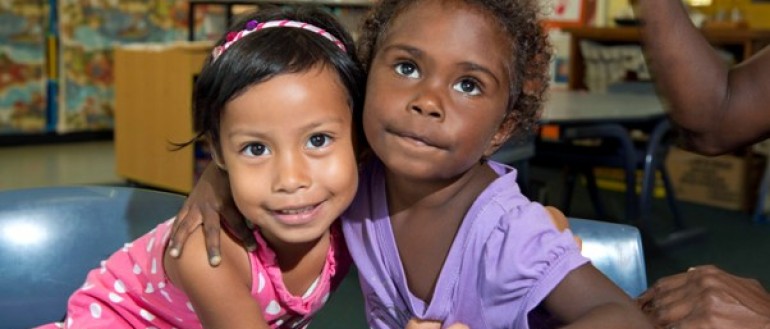The overall aim of this research is to identify interventional targets that can improve lung health and the management of respiratory diseases in Indigenous children. In doing so, lung disease may be detected early and possibly prevented. This study encompasses extensions of our previous bronchiolitis and chronic suppurative lung disease (CSLD) (includes non-cystic fibrosis bronchiectasis) studies and is split in to two studies (study-1 and study-2).
Objectives:
Study 1 – Long term consequences of children with hospitalised bronchiolitis
The specific research objectives in this study are to evaluate long term outcomes of Indigenous children previously hospitalised or treated in the community for bronchiolitis so as to:
a. determine risk factors (demographic, medical and microbiological) for the development of CSLD; and
b. identify possible intervention points that may prevent future lung disease.
Study 2 - Five to ten year outcomes of children with CSLD
The specific research objectives in this study are to evaluate long term clinical outcomes of Indigenous children with CSLD to:
a. determine predictors of clinical outcomes (e.g. recurrent acute lower respiratory infections (ALRI) and lung function);
b. determine which children are most likely to benefit from maintenance azithromycin and how long these beneficial effects persist; and
c. define the clinical significance of azithromycin on macrolide-resistant respiratory pathogens present in nasal swabs.
Significance of proposal:
The long term consequences of respiratory disease are a major issue among Indigenous children in remote communities. For the first time, study-1 will provide novel data on identifying point of care interventions for Indigenous children after hospitalisation for bronchiolitis, to improve long term respiratory outcomes and prevent subsequent development of CSLD.
Study-2 will help improve our understanding of predictors relating to clinical outcomes of children with CSLD. This long term follow-up will also provide important clinical data on the optimal duration of maintenance azithromycin, as well as the importance of acquiring antibiotic resistant pathogens on a patient-level.
The studies will also direct future interventions and management pathways. This research program will work closely with families and health departments to translate the research findings into meaningful outcomes (evidence based guidelines and culturally appropriate educational resources).
Our research has found:
Study 1 - ongoing
Study 2 – See links to publications
Chief investigator:
Project manager:
Contact information:
Project dates:
2015 - current
Funders:
- NHMRC Centre for Research Excellence in Respiratory Health of Aboriginal and Torres Strait Islander Children
Collaborators:
- Menzies School of Health Research
- Qld Children’s Medical Research Institute (University of Queensland)
- Children’s Health Queensland Hospital and Health Service
- Royal Darwin Hospital
-
$440 million funding boost for vital health and medical research for all stages of life
$6 million in research funding for three Indigenous health grants in the Northern Territory. This includes $2.5 million for an NHMRC Centre of Research Excellence at the Menzies School of Health Research to prevent and manage bronchiectasis, a lung disease which results in recurrent chest infections and is particularly common in Aboriginal and Torres Strait Islander people.
- McCallum G.B., Singleton, R.J., Redding, G.J., Grimwood, K., Byrnes, C.A., Valery, P.C., Mobberley, C., Oguoma, V.M., Eg, K.P., Morris, P.S.,& Chang, A.B.(2020). A decade on: Follow-up findings of Indigenous children with bronchiectasis. Pediatric Pulmonology, 55, 975-85. doi 10.1002/ppul.24696.
- Kinghorn, B., Singleton, R., McCallum, G.B., Bulkow, L., Grimwood, K., Hermann, L., Chang, A.B., & Redding, G. (2018). Clinical Course of Chronic Suppurative Lung Disease and Bronchiectasis in Alaska Native Children. Pediatric Pulmonology, 53,1662-1669.


